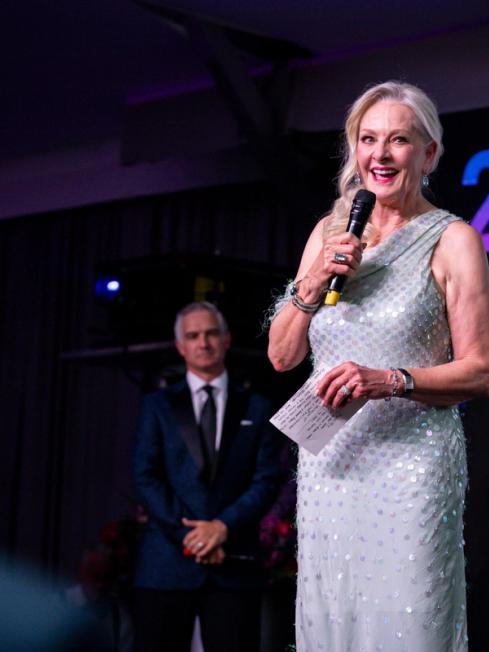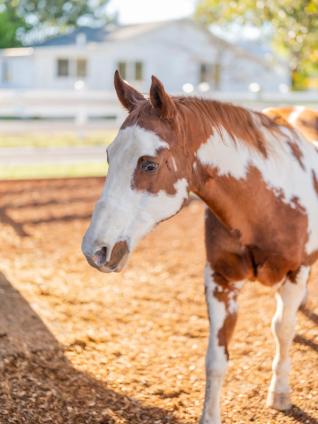Nurturing Our Business & Our Community
Sustainability is a philosophy we sow every day at Far Niente Wine Estates
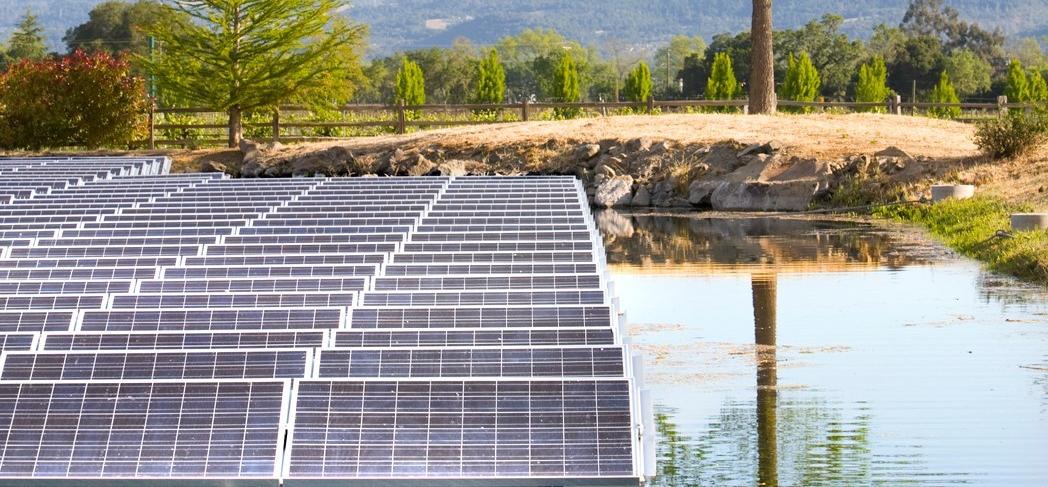
Cultivating a Promise to the Land & Community
Our devotion to excellence in winemaking has always been paired with a promise—a promise to care for the land entrusted to us and the community that enriches us. As stewards of 500 acres of vineyards and three Napa Valley wineries, Far Niente Wine Estates believes in protecting agriculture for the future, minimizing our environmental impact, maximizing care for our ecosystems, and making a difference in the lives of our employees and other residents.
Climate Resilience
Being sustainable wineries begins with creating vineyard ecosystems for plants and people that are resilient to Mother Nature’s mood swings. Climate-smart farming is a new approach where different techniques and technologies are employed to adapt how we grow grapes while delivering the exceptional level of quality for which Far Niente is known. Our methods include changing vineyard row orientation for sun protection, planting rootstocks and clones that are more resilient, and embracing the sustainable business pillars of water conservation, carbon footprint reduction, and biodiversity.
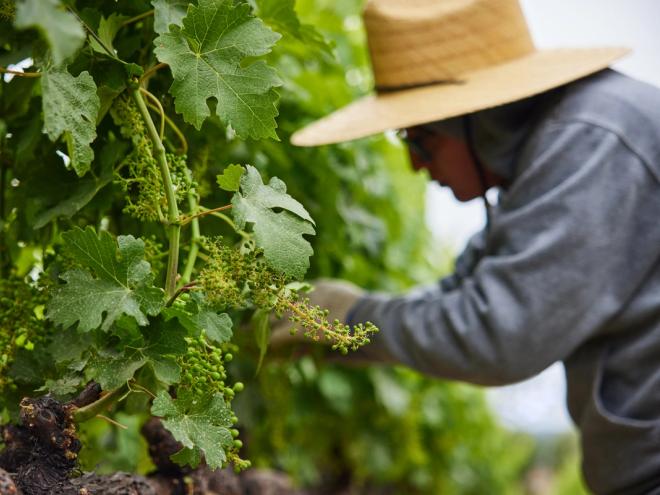
Water Conservation
One of the most important sustainable practices at our wineries is responsible water use. Conserving and recycling water helps us maximize this precious resource. Key steps we take include:
- Using reclaimed water for irrigation (recycled from the winery, city tertiary, and captured runoff)
- Installing a membrane bio-reactor wastewater treatment system to recycle water
- Embracing climate-smart technology, such as irrigation misters and pressure bombs, to measure vine stress and target water use when on a plant-by-plant basis
- Installing fans for frost protection in lieu of water
- Planting grapevines on drought-resistant rootstocks
- Being self-sufficient in our water sources (nearly all of our water comes from wells at our wineries and vineyards, and drip irrigation is used for landscape where possible)
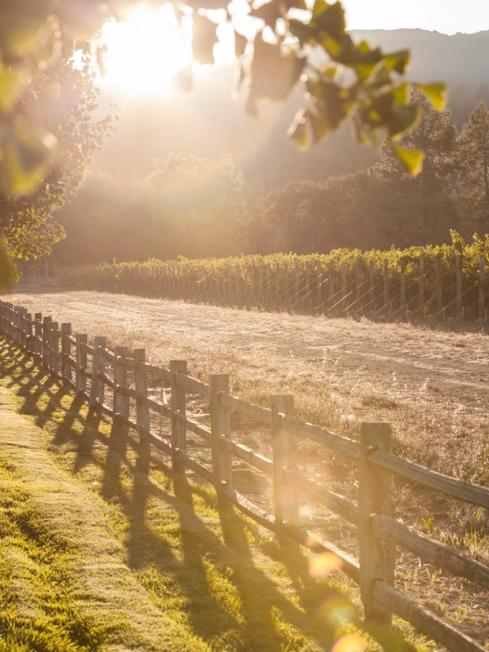
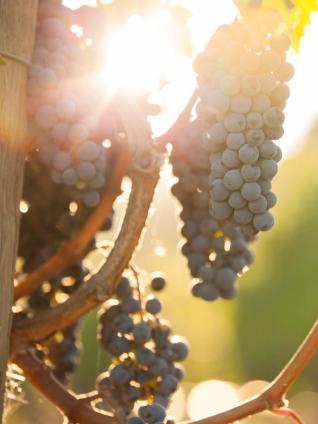
Reducing Energy Use and Carbon Footprint
We constantly look for new and innovative ways to improve energy efficiency and reduce our carbon footprint. For nearly a decade, the Far Niente team has been using the results of greenhouse gas and energy audits to address opportunities to reduce our footprint.
In the vineyards, we focus on:
- Using mechanical weed control to physically remove weeds in lieu of herbicides
- Implementing tillage and carbon capture planning in our vineyards, including composting
- Utilizing high winter biomass cover crops to capture carbon and experimenting with permanent cover crops
- Implementing multi-row mechanization to reduce tractor-drive time
- Using technology to monitor the grapevines remotely to decrease vehicle use
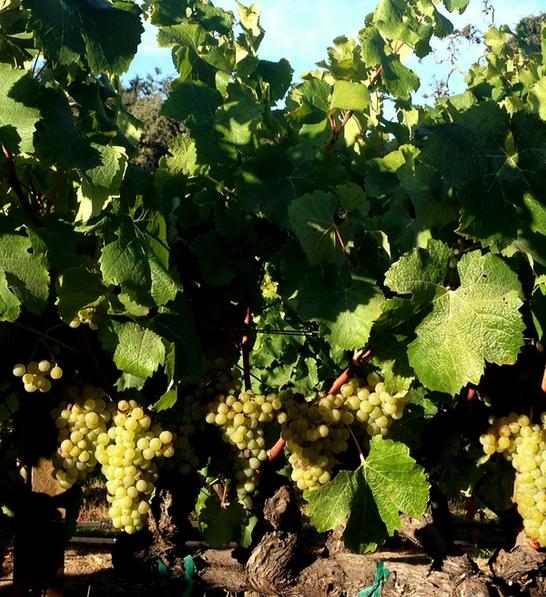
Our Napa Valley wineries are powered 100 percent with renewable energy. We achieve this through a combination of onsite solar arrays and renewable resources. An early adopter of solar energy, Far Niente installed the world’s first Floatovoltaic™ solar-electric array on our vineyard pond in 2008. Nickel & Nickel also benefits from solar power, and Bella Union is powered by renewable energy. Through Marin Clean Energy’s (MCE) Deep Green program, we purchase renewable energy (solar, wind, biogas, geothermal and hydroelectric) to make up any deficit between our solar arrays and winery demand.
In our wineries, we also conserve by:
- Composting and recycling
- Monitoring the carbon footprint of nearly all aspects of our business and supply chain
- Choosing sustainable sources for supplies
- Avoiding peak hours of electrical energy usage
- Using energy-efficient LED lighting
- Offering EV charging stations
- Promoting employee carpooling
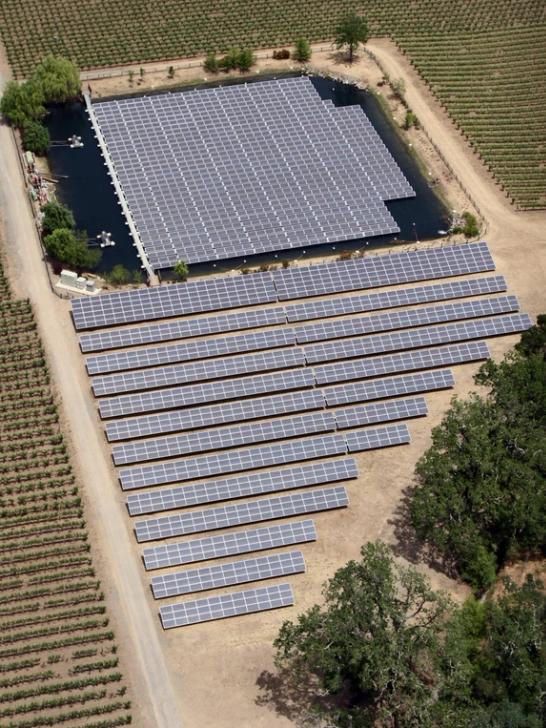
Biodiversity and Protection Against Pests
Sustainable wineries champion biodiversity in our vineyards. We do this by preserving natural habitats, creating native plant corridors, sowing cover crops, and forgoing the use of chemicals. A diverse and balanced ecosystem is best for the plants, beneficial insects, animals, and people.
We work to sustainably control pests and mitigate the risks they pose to grapevines in these ways:
- Erecting high-density owl boxes
- Releasing predatory insects
- Using insect mating disruption strategies for pests
- Donating land to natural habitat conservation programs, such as the Bale Slough Restoration Project at Bella Union
- Helping restore natural habitat and decrease erosion along the Napa River at Nickel & Nickel
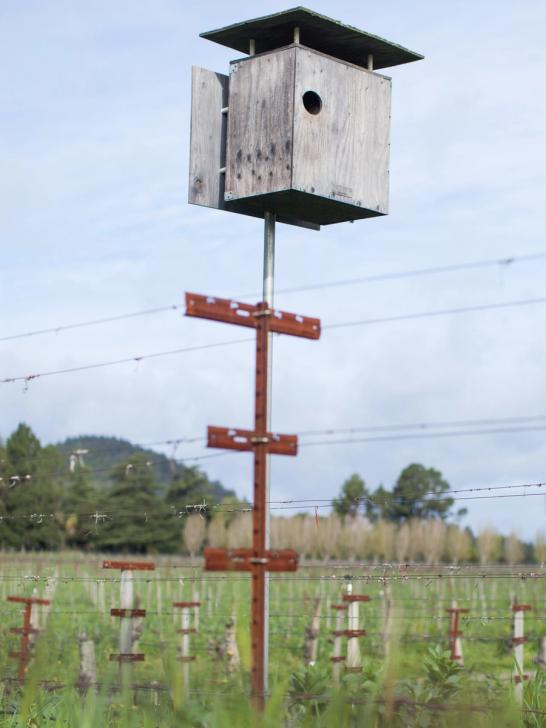
Philanthropy Siempre
As responsible neighbors with a rich heritage in Napa Valley, we are committed to the sustainability of our community through philanthropy, a philosophy established by the Nickel family. The daughter of a social worker, Beth Nickel grew up with the spirit of giving, and Gil shared her values. In the summer of 1982, they raced to finish construction of the winery and gardens to host their first Auction Napa Valley dinner—before the first grape was even crushed at Far Niente. Philanthropic work has remained siempre in our mission at Far Niente (“always,” as they say in Italian.) Each year, we also support numerous health and education causes through donations and events, including multiple national cancer foundations in honor of founder Gil Nickel. Our employee-paid Volunteer Day and horse rescue program are also essential parts of our company’s commitment to kindness and community.
